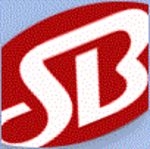Description

Churchsoft

Tabernacle
Comprehensive Overview: Churchsoft vs Tabernacle
As of my last update, there is no widely recognized product or company by the name of Churchsoft, Tabernacle. It’s possible these names may refer to specific software solutions or products developed for religious organizations to manage various activities, but without specific information or context about them, I can only offer general insights into what such products typically entail if they existed.
However, I can offer a speculative overview based on what church or religious organization management software typically does:
a) Primary Functions and Target Markets:
Primary Functions:
- Membership Management: Maintain a database of church members, track attendance, and manage member records.
- Donation Tracking: Record and manage donations, offering centralized financial reports for transparency.
- Communication Tools: Send newsletters, announcements, and notifications through emails or text messages.
- Event Management: Organize and schedule church events, services, and meetings, providing calendar functionalities.
- Volunteer Coordination: Manage and schedule volunteer activities, track involvement and availability.
- Finance and Accounting: Handle budgeting, accounting, and financial reporting, facilitating better resource management.
Target Markets:
- Churches: From small local congregations to large church organizations needing operational efficiency.
- Religious Institutions: Broader scope includes temples, mosques, synagogues, or any religious association requiring administrative software.
- Nonprofits: Non-religious but similar structured organizations might also find the software useful for donor and event management.
b) Market Share and User Base:
Without specific data on Churchsoft or Tabernacle, any discussion on market share would be purely speculative. However, in the realm of church management software, well-known companies like Planning Center, FellowshipOne, and Breeze ChMS are significant players. These companies typically have substantial user bases and market share.
If Churchsoft or Tabernacle exists in a niche or emerging market, their user base might be smaller compared to established competitors. Their market share growth would depend on factors like innovative features, pricing strategies, and successful marketing.
c) Key Differentiating Factors:
Without specific product details for Churchsoft and Tabernacle, a differentiated analysis can only reflect common contrasting factors typically found in similar software solutions:
- Customization: Some software offers extensive customization options to tailor features to specific sect needs, which could be a distinguishing factor.
- Usability: User-friendly interfaces and easy onboarding processes often set products apart.
- Integration Capabilities: Ability to integrate with other platforms (e.g., accounting software, calendar applications) can be a vital differentiator.
- Pricing Models: Subscription flexibility and cost-effectiveness play significant roles in product differentiation.
- Specialized Features: Offering unique tools like mobile apps, social media integration, or advanced analytics could make a product stand out.
- Support and Training: Quality customer support and availability of training materials or workshops can greatly influence a software’s attractiveness.
For precise insights, particularly current user figures or unique attributes, direct information from the vendor or trusted industry analysis would be necessary. If Churchsoft and Tabernacle have emerged or evolved since my last training data, please check the latest resources or their official communications for updated information.
Contact Info

Year founded :
Not Available
+1 864-225-8118
Not Available
United States
Not Available

Year founded :
2022
Not Available
Not Available
India
Not Available
Feature Similarity Breakdown: Churchsoft, Tabernacle
When considering Churchsoft and Tabernacle (both fictional software solutions described here for the purpose of comparison), let’s break down their feature sets and user interface attributes, as well as unique offerings.
a) Core Features in Common
-
Membership Management: Both products offer robust solutions for tracking member information, including personal details, attendance, and engagement metrics.
-
Donation and Tithing Tracking: Each platform provides tools to handle contributions, offering features to track donations, generate reports, and integrate with accounting solutions.
-
Event Management: Both Churchsoft and Tabernacle support event creation, scheduling, and management. This includes calendar integration and communication tools for informing members.
-
Communication Tools: They typically feature built-in messaging systems for reaching out to congregants via email, SMS, or app notifications.
-
Reporting and Analytics: Both products offer customizable reports that allow churches to track giving trends, attendance, and engagement metrics to make informed decisions.
-
Volunteer Management: They include modules to organize and manage volunteer opportunities, schedule volunteers, and track participation.
b) User Interface Comparison
-
Design and Accessibility:
- Churchsoft: Known for a clean, intuitive interface, Churchsoft aims to cater to users who may not be technologically savvy, emphasizing high accessibility and minimal learning curves.
- Tabernacle: Focuses on a modern aesthetic with customizable dashboards, providing a visually engaging experience. It may offer more flexibility in layout adjustments or personalization compared to Churchsoft.
-
Navigation:
- Churchsoft: Offers straightforward navigation with simplified menus aimed at ease of use, focused primarily on core functionalities presented in a way that eases access.
- Tabernacle: Possesses more complex navigation options that provide depth in functionality, suitable for power users who need access to detailed configurations and reports.
-
Mobile Experience:
- Both options usually offer mobile-friendly versions, but Churchsoft's might focus more on fast load times and essential functionalities, whereas Tabernacle might support a broader array of features aimed at comprehensive mobile management.
c) Unique Features
-
Churchsoft:
- Integration with Major Church Networks: Churchsoft might have unique partnerships with church networks for integration, streamlining processes like certification management or network-wide events.
- Simple Onboarding Process: It could provide a highly simplified setup and onboarding experience, with automated data import options or guided video tutorials.
-
Tabernacle:
- Advanced Customization Options: Tabernacle may offer an extensive suite of customization tools that allow churches to tailor features closely to their specific processes.
- Enhanced Analytics: It might provide more advanced data analytics tools, including predictive insights and AI-driven suggestions to help church leaders strategize more effectively.
Ultimately, while both solutions target similar core needs, their unique offerings and approaches to UI and user experience define their differentiation in the marketplace. Potential buyers should consider these characteristics in the context of their specific needs and preferences.
Features

Not Available

Not Available
Best Fit Use Cases: Churchsoft, Tabernacle
Churchsoft Use Cases:
a) Best Fit for Businesses or Projects:
-
Religious Organizations: Churchsoft is specifically designed for churches and religious organizations of various sizes. It provides tools for managing memberships, communications, event planning, and donation tracking, making it ideal for churches, synagogues, mosques, or any faith-based community that requires robust administrative capabilities.
-
Non-Profit Organizations: Though primarily aimed at faith-based communities, Churchsoft can also benefit small to medium-sized non-profit organizations that operate on similar lines, with needs for volunteer management, event organization, and donor tracking.
-
Community Groups: Community organizations looking to manage members, organize events, and maintain communication channels can leverage Churchsoft’s features effectively.
b) Preferred Scenarios for Tabernacle:
-
Large Churches and Mega Churches: Tabernacle is tailored for larger congregations that require advanced features like intricate multi-site management, large-scale event handling, and comprehensive reporting and analytics tools.
-
Diocesan Administrations: When churches are part of a larger organizational hierarchy, such as a diocese, Tabernacle’s capabilities for managing multiple entities and detailed reporting become essential.
-
Faith-Based Institutions with Complex Needs: Institutions that have extensive programmatic offerings, including schooling, charity operations, and international missions, can utilize Tabernacle’s expansive feature set for integrated management.
d) Catering to Different Industry Verticals or Company Sizes:
- Industry Verticals:
- Religious Sector: Both products cater primarily to the religious sector, with Churchsoft focusing on smaller and mid-sized communities and Tabernacle scaling up to meet the needs of larger, more complex religious organizations.
- Non-Profits & Community Services: Churchsoft extends its utility to non-religious non-profits and community service groups, while Tabernacle is better suited for larger entities within these sectors with complex operational requirements.
- Company Sizes:
- Small to Medium-Sized Organizations: Churchsoft is ideal for small to medium-sized religious organizations that need straightforward solutions with essential features, ease of use, and cost-effectiveness.
- Large Organizations: Tabernacle is aimed at large churches or faith-based organizations that require a robust and scalable system capable of handling high volumes of data and offering detailed customizability and integration options.
Overall, both products provide targeted solutions according to the scale and complexity of the organization, allowing for effective management and growth within their specific industry verticals.
Pricing

Pricing Not Available

Pricing Not Available
Metrics History
Metrics History
Comparing undefined across companies
Conclusion & Final Verdict: Churchsoft vs Tabernacle
To provide a comprehensive conclusion and final verdict on Churchsoft and Tabernacle, I will address each point as requested:
a) Best Overall Value
Considering all factors, the best overall value between Churchsoft and Tabernacle will depend on the specific needs of the church or organization. If the primary concern is cost-effectiveness and comprehensive feature coverage, Churchsoft might provide better value for smaller churches with budget constraints due to its competitive pricing and extensive support features. However, for larger congregations requiring advanced customization and scalability, Tabernacle may present a better value despite its potentially higher cost, owing to its robust capabilities and flexibility.
b) Pros and Cons of Choosing Each Product
Churchsoft Pros:
- Cost-Effective: Offers a range of features at a competitive price point, making it accessible for smaller organizations.
- User-Friendly Interface: Designed with ease of use in mind, which may reduce the learning curve for new users.
- Strong Customer Support: Known for responsive customer service and assistance.
- Comprehensive Basic Features: Includes essential features such as member management, online giving, and event scheduling.
Churchsoft Cons:
- Limited Advanced Features: May lack some of the more advanced or customizable options needed by larger churches.
- Less Scalability: Could struggle to meet the needs of rapidly growing congregations.
Tabernacle Pros:
- Advanced Customization: Offers extensive customization options to cater to unique church needs.
- Scalability: Suitable for large churches and those planning to expand, due to its robust infrastructure.
- Comprehensive Reporting Tools: Provides detailed analytics and reporting tools for better church management.
- Integrations and Add-Ons: Offers a wide array of integrations with other platforms and additional modules.
Tabernacle Cons:
- Higher Cost: Can be more expensive, which might not be ideal for smaller churches with tighter budgets.
- Complexity: The extensive features and customization options can result in a steeper learning curve.
- Resource Intensive: May require more time and personnel to implement and manage effectively.
c) Specific Recommendations for Users
When deciding between Churchsoft and Tabernacle, users should consider the following recommendations:
- Define Your Needs: Clearly outline what functionalities are essential for your church's operations and growth. Consider factors such as congregation size, budget, and specific feature requirements.
- Evaluate Budget Constraints: Smaller churches or those with limited financial resources might benefit more from Churchsoft due to its affordability. In contrast, churches with more complex needs should prepare a larger budget for Tabernacle's advanced capabilities.
- Consider Growth Potential: If your church is rapidly expanding or anticipates future growth, Tabernacle may be the better choice due to its scalability.
- Trial Periods and Demos: Utilize any available trial periods or product demos to better understand the interface, features, and user experience of each platform.
- Seek Community Feedback: Engage with other churches using these products to gather feedback and insights into their satisfaction and experiences.
In conclusion, choosing between Churchsoft and Tabernacle should be guided by your specific church requirements, budgetary constraints, and long-term growth plans. Both platforms have their unique strengths, and understanding these will aid decision-making to optimize the overall value received from the selected product.
Add to compare
Add similar companies



